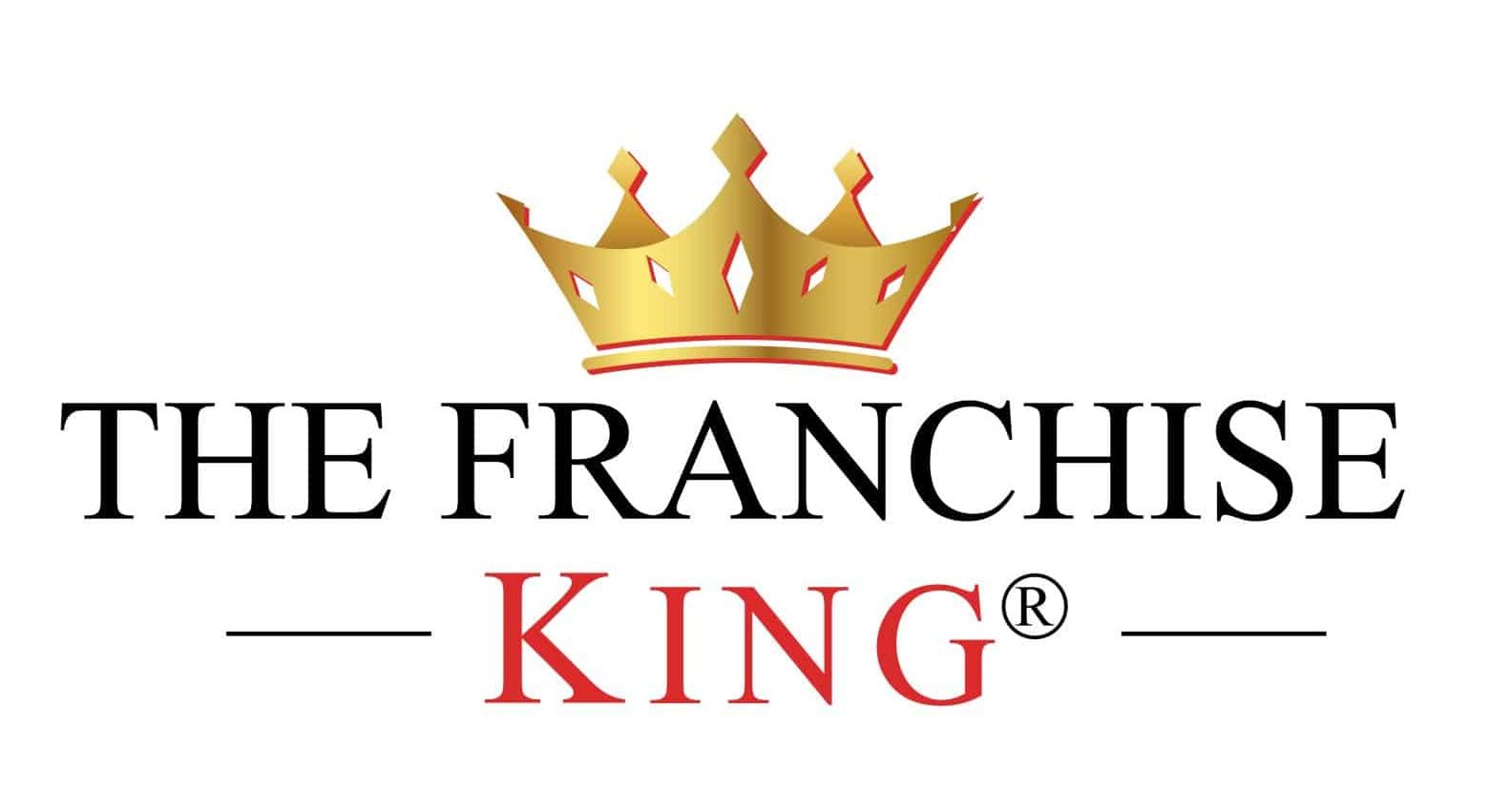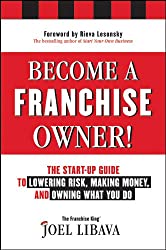
I’ve spent decades guiding aspiring franchisees. And I don’t want them to get hurt.
From choosing the right franchise to understanding the financials, I’ve pretty much seen it all.
But, as of late, there’s one external factor that doesn’t get enough attention in the franchise world: tariffs, and how they can hurt today’s franchisees. And, unfortunately, franchising leaders are burying their heads in the sand when it comes to tariffs.
In this post, I’m going to show you how tariffs can and will cause serious financial pain to franchisees all over the United States.
In addition, I’ll tell you how future and current franchisees can prepare for them and counter them in the best way possible.
Why Tariffs And Their Trickle-Down Affect Hurts Franchisees
Tariffs—taxes imposed on imported goods—are often discussed in the context of global trade and politics.
However, their impact trickles down to Main Street, affecting small businesses, including franchisees.
In fact, franchisees in particular, are vulnerable to the ripple effects of tariffs because they operate within a system that relies on consistency, cost control, and supply chain efficiency. But there’s more.
According to an article on CFO Dive, “Most CFOs responding to a recent Gartner poll said they expect much of the financial cost from various Trump administration tariffs on imported goods to be passed on to consumers.”
And it’s those same consumers who are the revenue source for franchise owners.
5 Ways Tariffs Hurt Franchisees
Here are 5 ways tariffs can hurt franchisees along with what you need to know to protect your investment if you’re a franchise owner:
1. Increased Costs of Goods and Supplies
Many franchisors and franchisees rely on imported goods or materials to operate. Whether it’s the ingredients for a fast-food franchise, the equipment for a fitness center, or the furniture for a co-working space, tariffs can drive up the cost of these essential items.
For example, if your franchise business uses stainless steel equipment and tariffs are imposed on steel imports, the price of that equipment will rise.
Similarly, if your franchise relies on imported food products, tariffs can increase your food costs. These added expenses eat into your profit margins, leaving you with less revenue to reinvest in your business or pay yourself. Tariffs do hurt franchisees.
2. Supply Chain Disruptions
Tariffs don’t just increase costs—they can also disrupt the supply chain.
That’s because when tariffs are imposed, suppliers may struggle to source materials at reasonable prices, leading to delays or shortages. For franchisees, this can mean not having the ability to offer certain menu items, running out of essential inventory, or worse case scenario, closing temporarily due to a lack of supplies. Remember the pandemic?
Imagine running a coffee franchise and suddenly finding yourself without your signature coffee beans because your supplier can’t import them due to trade disputes. The result?
Damaged reputations, frustrated customers, and lost revenue.
Update: New report details how Small Business owners are feeling about tariffs-and how’ll their businesses will be impacted.
3. Higher Initial Costs
Franchisors often pass increased costs down to franchisees.
So, if tariffs raise the cost of goods or equipment for the franchisor, they may offset these expenses by increasing their initial investment costs.
For franchisees, this means paying more money to start a franchise and more to add other franchise locations. Entire business plans will need to be reworked.
Finally, while franchisors may try to absorb some of these costs, the reality is that many will pass them on to their franchisees. This double whammy of higher costs and increased fees can strain your finances as a franchisee and make it harder to achieve break-even and profitability.
4. Reduced Consumer Spending Hurts Franchisees
Tariffs don’t just affect businesses—they also impact consumers.
For instance, when tariffs lead to higher prices for goods and services, consumers may cut back on discretionary spending. For franchisees in industries like dining, retail, or entertainment, this can mean fewer customers and lower sales. A lot lower.
For example, if tariffs lead to higher prices for electronics, consumers may have less money to spend on eating out or buying premium coffee.
As a result, this reduction in consumer spending will quickly hurt franchisees who rely on steady foot traffic and repeat customers to stay afloat.
5. Uncertainty and Risk
One of the biggest challenges of tariffs is the uncertainty they create.
As we’ve seen in real-time, trade policies can change quickly, making it difficult for franchisees to plan for the future. Which begs these questions:
- Will tariffs remain in place?
- Will new tariffs be imposed?
- How will these changes affect your costs and operations?
Bottom line?
Franchisors and franchisees need clarity. And consistency.
On Tariff Clarity, Flaky Answers And Franchisees Getting Hurt
Here’s one example of how not having clarity on tariffs can hurt franchisees.
From a CNBC interview between Maria Bartiromo and President Trump:
“Appeals to the White House from the business community to provide more concrete guidance, Trump said, are little more than talking points. They just use that — like almost a sound bite.”
Really??? Let’s continue:
“Pressed by Bartiromo on whether there would be ‘clarity for the business community,’ Trump’s reply was telling.”
“I think so, but you know, the tariffs could go up as time goes by, and they may go up, and you know, I don’t know if it’s predictability.”
“Bartiromo interjected: ‘That’s not clarity.’”
Given that example, this uncertainty can make it harder to secure financing, negotiate leases, or make long-term investments in your franchise. It also adds an extra layer of risk to a wonderful business model, potentially making franchising a little less of an attractive option for potential entrepreneurs. I’m not yet convinced.
What Can Current Franchisees Do To Not Get Hurt As Much?
While you can’t control international trade policies, there are steps you can take to mitigate the impact of tariffs on your franchise business:
- Stay Informed: Keep an eye on trade developments and how they might affect your industry. Knowledge is power, and being proactive can help you prepare for potential challenges.
- Diversify Suppliers: If possible, work with multiple suppliers to reduce your reliance on any single source. This can help you avoid disruptions if one supplier is affected by tariffs.
- Negotiate with Franchisors: If tariffs are impacting your business, talk to your franchisor, or get your franchisee council to do it for you. They may be able to offer support, such as temporary fee reductions or assistance with sourcing alternative suppliers.
- Focus on Efficiency: Look for ways to cut costs and improve efficiency in your operations. This can help offset the impact of higher expenses caused by tariffs.
- Engage with Industry Groups: Join franchise associations or industry groups that advocate for small businesses. These organizations can provide resources and represent your interests in discussions about trade policy. Usually.
Final Thoughts
The impact from tariffs is real, and they can impact franchisees a lot.
From higher costs to supply chain disruptions, the challenges they create can make it harder to run a successful franchise business.
My advice is to stay informed, be proactive, and focus on what you can control.
And, while you can’t eliminate the risks posed by tariffs, you can take steps to protect your business and position yourself for long-term success.
Remember, franchising is a partnership—and navigating challenges like tariffs requires collaboration between franchisees and franchisors.
So, work together to weather the storm.
And, here’s to your success!
About the Author
The Franchise King®, Joel Libava, is a leading franchise expert, author of "Become a Franchise Owner!" and "The Definitive Guide to Franchise Research." Featured in outlets like The New York Times, CNBC, and Franchise Direct, Joel’s no-nonsense approach as a trusted Franchise Ownership Advisor helps aspiring franchisees make smart, informed decisions in their journey to franchise ownership. He owns and operates this franchise blog.
Note: When you buy through links on this website, we may earn an affiliate commission.









